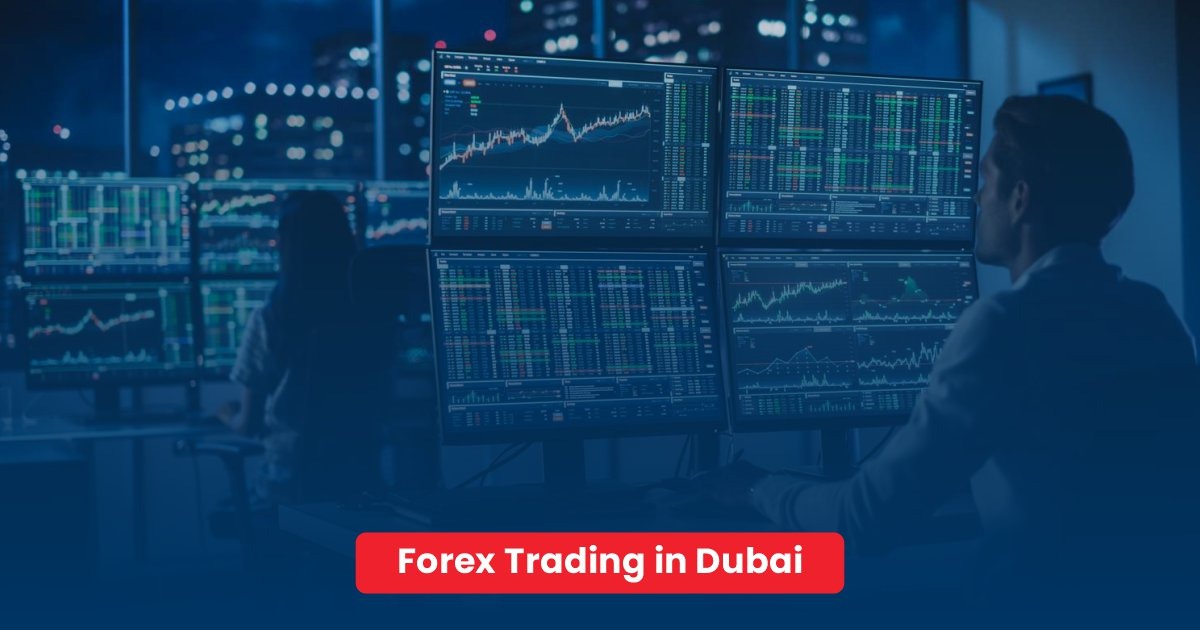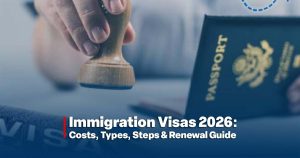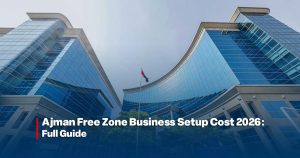This guide breaks it all down. Simple answers. Real steps. No wasted time. Ready to trade smarter? Start by asking these 7 questions that every smart trader should know.
Table of contents
|
What Is Forex Trading in Dubai?
Forex trading in Dubai means buying and selling international currencies for profit under the UAE’s financial rules. It’s legal, tax-free, and open to anyone using a licensed broker. The market runs 24 hours, five days a week.
This offers non-stop opportunities to trade currency pairs like USD/AED. You can begin with a demo, then move to live trades through trusted platforms like MT4 or MT5.
Dubai is perfect because of its strict regulations, which help protect traders and ensure fair access, quick technology, and easy access to major markets.
However, risk is real. Learn first, then trade smart. Start with a demo, choose a DFSA-regulated broker, and follow market news daily
Why Forex Trading in Dubai Wins: 7 Real Perks
Forex Trading in Dubai isn’t just hype. Honestly, it’s smarter than most global hubs. Here’s why traders choose Dubai and stick for life.
1. Zero taxes on profits
- Keep every dirham you earn. Dubai won’t touch your gains.
2. Trade 24/5, matching Dubai’s pace
- New York closes? Trade Tokyo or London hours from your JBR sofa.
3. Ironclad DFSA/ADGM regulation
- Scams get crushed fast here. Brokers like ADS Securities play by strict rules.
4. AED pairs with oil/gold sensitivity
- Profit when OPEC news drops—unique to Gulf markets.
5. Start small (AED 500+)
- No need for huge cash. Test strategies with micro-lots first.
6. No personal income reports
- Trade privately. Banks only see deposits, not profits.
7. Vibrant trader communities
- Join Dubai Trading Club meetups. Get tips from veterans.
How Dubai Beats Other Forex Hubs?
| Benefit | Dubai | UK | Singapore |
| Tax on Profits | 0% | 20% Capital Gains | 0-22% |
| Min. Deposit | AED 500 (~$136) | £500 (~$630) | SGD 1,000 (~$740) |
| Regulator | DFSA / ADGM | FCA | MAS |
| Trading Hours | 24/5 (Aligns with GMT+4) | 24 hours a day
For 5 days |
24/5 |
| Account Privacy | No personal reporting | Tax reports required | Limited privacy |
Proven Success Tactics
- Leverage oil shifts: When UAE oil output changes, USD/AED moves fast. Set alerts.
- Use time zones: Trade AUD during Asian hours and EUR at London open—all before lunch.
- Stick to DFSA brokers: ADS Securities and Swissquote. They won’t vanish overnight.
Real Talk: Low costs + high flexibility = why 42% of expat traders are based here. But risks exist.
Need a Broker License? Business Link UAE sets up DFSA-approved firms in 8 weeks. They handle paperwork; you focus on charts.
Best Platforms for Forex Trading
Choosing the right platform is key to your success in forex trading. Many options exist, but not all offer the same tools, fees, or legal protection. Below is a simple, human-friendly guide to help you compare the best platforms used in Forex Trading in Dubai and beyond.
Top 7 Forex Trading Platforms You Can Trust
-
MetaTrader 4 (MT4)
-
-
- Widely used across the world
- Simple layout with strong tools for charts
- Supports automated trading (EAs)
- Low system requirements and runs fast
-
-
MetaTrader 5 (MT5)
-
-
- Offers more indicators and timeframes than MT4
- Supports stock and futures trading too
- Faster trade processing
- Stronger chart customization
-
-
cTrader
-
-
- Modern interface and easy to learn
- Offers Level II pricing
- Great for manual and automated trading
- Works well on web and desktop
-
-
ThinkTrader
-
-
- Clean mobile app design
- Over 100 indicators
- Allows up to 4 charts at once
- Good for traders on the go
-
-
NinjaTrader
-
-
- Best for advanced analysis
- Customizable charts and tools
- Supports futures and forex
- Has a free version with basic tools
-
-
Interactive Brokers (IBKR)
-
-
- Strong global presence
- Low spreads and fees
- Deep liquidity access
- Ideal for large volume traders
-
-
Saxo Bank
-
- Premium platform with wide asset access
- Highly regulated in UAE and globally
- Offers strong account security
- Good for experienced investors
Comparison Table: Top Forex Trading Platforms
To help you choose, here is a quick comparison of some popular platforms. Remember, the “best” one always depends on your personal trading style and needs.
| Platform | Best For | Spreads (EUR/USD) | UAE Compliance | Key 2025 Edge |
| MetaTrader 5 | Algorithm traders | 0.2–1.5 pips | DFSA | 44 indicators + crypto futures |
| cTrader | Manual trading | 0.0 pips* | ADGM | Level II pricing + 0.3s execution |
| ThinkTrader | Mobile users | 0.9 pips | DFSA | 4 live charts + Reuters alerts |
| Interactive Brokers | Pros | $16–$40/million RT | SCA | 100+ currencies + stocks |
Tips to Choose the Right Platform
- Always check if the broker using the platform holds a license in Dubai
- Compare spreads, commissions, and platform fees before choosing
- Test the platform with a demo account before going live
- Use platforms that comply with AML/KYC regulations
Why It Matters in Forex Trading in Dubai?
Choosing the right platform ensures legal safety and smooth trading. Also, it helps you manage risks better. In Dubai, using DFSA-regulated platforms reduces issues and offers faster dispute handling.
With so many alternatives, your goals will determine which one is best for you. Whether you’re new or experienced, always test the platform first. For help with setup or license checks, reach out to Business Link UAE. They guide you through every legal and technical step to start trading with confidence.
Is Forex Trading in Dubai legal and regulated?
Is Forex trading in Dubai legal and regulated? This question is key for traders who want to operate safely. Forex trading in Dubai is allowed—but only if you follow strict rules.
It ensures protection for investors and creates trust in the market. The key details regarding the legality and regulation of forex trading in Dubai are listed below.
- Forex Trading in Dubai is fully legal under UAE laws when conducted with licensed entities.
- The market is regulated by top authorities: Dubai Financial Services Authority (DFSA), Securities and Commodities Authority (SCA), and Abu Dhabi Global Market (ADGM).
- These regulators enforce strict rules to protect traders and investors from fraud and malpractice.
- Businesses that provide forex trading or brokerage services must have a license.
- Only firms with valid licenses can operate legally and provide trading platforms in Dubai.
- Dubai’s regulatory bodies demand compliance with Anti-Money Laundering (AML) and Know Your Customer (KYC) policies.
- Licensed brokers in Dubai are subject to regular audits and reporting, increasing transparency.
- The UAE government has banned unlicensed forex trading to prevent scams and protect the public.
- Forex trading platforms must operate within approved free zones or financial centers, such as DIFC or ADGM.
- Traders should verify broker licenses on official regulator websites before opening accounts.
- Dubai’s regulatory system allows for 100% foreign ownership in free zones, attracting global forex firms.
- Operating without a license in Dubai can lead to severe fines, business closure, and legal action.
- Dubai promotes forex trading under clear guidelines, combining investor safety with market growth.
- In order to foster confidence, the regulatory framework encourages transparency and contemporary trading tools.
Why Choose Licensed Forex Trading in Dubai?
- You trade under legal protection with clear rules.
- Your funds are safer due to regulated brokers and segregated accounts.
- The market offers 24/5 trading hours, giving flexibility.
- Dubai’s regulators foster a fair, transparent environment.
- Licensed brokers provide reliable customer support and dispute resolution.
What Traders Should Do to Ensure Legal Trading in Dubai
- Always check if the broker holds a DFSA, SCA, or ADGM license.
- Avoid brokers promising guaranteed returns or unregistered platforms.
- Use demo accounts to test before risking real funds.
- Stay informed about regulatory updates on official websites.
Forex Trading in Dubai stands out as a safe and legal market. With strict regulation, licensing requirements, and investor protection laws, Dubai ensures a trustworthy trading environment. Always choose licensed brokers and stay compliant to trade with confidence.
Forex Trading License in Dubai
Starting a Forex trading business in Dubai requires more than just market knowledge. You need the right license. Without it, your company can’t operate legally, and you risk heavy penalties or shutdown. I will explain the licenses, costs, timelines, and requirements—so you avoid mistakes and get approved faster.
Why a License Matters?
- Ensures legal compliance in the UAE
- Builds client trust and credibility
- Protects investors with strict AML rules
- Grants access to top global trading platforms
- Allows 100% foreign ownership in free zones
Main Authorities That Issue Forex Licenses
DFSA – Dubai Financial Services Authority
- For companies in the Dubai International Financial Centre (DIFC)
- Ideal for firms handling client funds
- Offers Category 3 and 3A brokerage licenses
- Requires a real office inside DIFC
- Base capital: USD 500,000+
SCA – Securities and Commodities Authority
- Covers forex firms outside DIFC, including mainland and other free zones
- Requires clear business plans, qualified staff, AML policies
- Minimum capital: AED 500,000–1,000,000+
ADGM – Abu Dhabi Global Market
- For forex firms registered in Abu Dhabi
- Rules and capital requirements are comparable to those of the DFSA.
- Faster processing: 8–12 weeks
DED – Dubai Economy (Commercial License)
- Needed for mainland companies
- Includes business activities like “financial brokerage” or “consultancy”
- Paired with SCA approval
Forex License Comparison Table
| License Type | Authority | Jurisdiction | Capital Required | Activity |
| Category 3A Forex Brokerage | DFSA | DIFC | USD 500,000+ | Handles client funds |
| SCA Forex Broker | SCA | Mainland | AED 1,000,000+ | Offers FX trading |
| Trading Own Funds | DMCC | Free Zone | AED 50,000 | Trades firm capital |
| DGCX Contracts for Clients | DMCC + SCA | Free Zone | AED 50,000 | Client account trading |
| Advisory License | DFSA / SCA | DIFC / Mainland | USD 10,000–50,000 | Financial consultancy |
Key Requirements
- Real office (200 sq. ft.+) in financial zone
- 2 or more certified traders with UAE residency
- Proof of capital in local bank
- Business plan with AML/KYC framework
- Clean criminal record certificates
- Company CVs and experience letters
Application Timeline
| License | Approval Time |
| DFSA | 2 to 4 months* |
| SCA | 3 to 5 months |
| DED License | 7 to 10 days |
| ADGM | 3 to 4 months |
Steps to Get Licensed
- Define your business activity: trading, advising, or brokerage
- Choose your location: DIFC, mainland, or free zone
- Prepare capital and open a local account
- Create a thorough business plan that includes risk controls.
- Register your company
- Apply to the relevant regulator (DFSA, SCA, or ADGM)
- Submit all documents, including staff qualifications
- Wait for regulatory review and site inspection
- Receive final approval
For Faster Approval
- Submit Arabic documents to avoid translation delays
- Avoid offshore shareholders (DFSA rejects 73% of these)
- Hire locally—51% of staff should be UAE residents
- Don’t skip the business plan or compliance details
- Work with licensed consultants
Avoid These Mistakes
- Choosing the wrong activity code
- Ignoring the capital deposit step
- Using a virtual office
- Applying to the wrong authority
- Missing required documents
Best Free Zones for Forex
| Zone | Regulator | Ideal For |
| DIFC | DFSA | Licensed brokers, advisors |
| ADGM | ADGM FSRA | Forex and Crypto firms |
| DMCC | SCA | Startup trading firms |
| IFZA | N/A | Platform developers only |
Dubai is one of the world’s fastest-growing forex hubs. But the setup must be clean from day one. Licensing isn’t just a paper exercise. It’s the base for real growth, solid compliance, and global credibility.
Want to focus on trading, not paperwork?
Business Link UAE helps forex firms get licensed the right way. They handle forms, approvals, bank account setup, and regulator contact. That means you trade faster—with zero mistakes.
How to Start Forex Trading in Dubai?
Thinking about forex in Dubai? Starting Forex trading in Dubai can be simple if you follow the legal route. Here’s a step-by-step guide to starting
Step-by-Step Guide: Start Forex Trading in Dubai
1. Understand the Legal Structure
- Forex trading is legal in Dubai only with a proper license
- Choose the right setup: free zone or mainland
- Know the key regulators: DFSA (DIFC), SCA (Mainland), FSRA (ADGM)
2. Decide Your Business Model
| usiness Type | License Needed | Jurisdiction |
| Broker for Clients | DFSA Category 3A | DIFC |
| Trade Your Own Funds | DMCC License | Free Zones |
| Crypto-Forex Activities | SCA Category 3C | UAE Mainland |
3. Apply for Initial Approval
- Submit trade name and activity to DED or Free Zone authority
- Approval takes 5-10 working days
4. Register Your Company
- Use correct activity code: financial brokerage or consultancy
- Select legal form: LLC, branch, or FZE
5. Fulfill Capital Requirements
| Regulator | Minimum Capital |
| DFSA | USD 500,000+ |
| SCA | AED 1,000,000+ |
| FSRA | USD 250,000 to 500,000 |
- Capital must be deposited before license is issued
- Keep proof of deposit for inspection
6. Set Up an Office
- Office must be physical, not virtual
- Required space: 200+ sq. ft.
- Location must match license jurisdiction
7. Prepare Key Documents
- Passport copies of all shareholders
- Clean criminal record
- Business plan with AML/KYC policies
- Capital deposit letter
- Lease agreement for office space
8. Apply for License
- Submit application to DFSA, SCA, or FSRA
- Interview and background checks may follow
- Approval usually takes 2 to 6 months
9. Open Corporate Bank Account
- Choose from banks like Emirates NBD, ADCB, or Mashreq
- Provide trade license and compliance documents
- Some banks require personal presence
10. Choose Trading Platform
- Use regulated tools like MetaTrader 4 or 5
- Make sure platform supports KYC
11. Hire Qualified Staff
- UAE residency required for 51% of staff
- Employ certified traders or finance professionals
12. Start Trading
- Begin with demo accounts
- Test strategies before going live
13. Ensure Ongoing Compliance
- Follow all AML and KYC laws
- Submit regular reports to your regulator
14. Market Your Services
- Promote only after license is approved
- Include license number in all ads
15. Common Mistakes to Avoid
- Using wrong activity code
- Starting without capital deposit
- Skipping Arabic translations
- Hiring non-qualified staff
For a faster setup, partner with consultants like Business Link UAE. They help with licensing, banking, and document prep. This reduces errors and speeds up approval.
Contact Business Link UAE to start your Forex Trading in Dubai legally and smoothly.
What are typical costs for Forex Trading in Dubai?
- Spread (difference between buy/sell rate)
- Occasional commissions
- Overnight interest fees. Plus, some platforms may charge withdrawal fees.
Summary
Still unsure where to begin? These 7 Questions About Forex Trading in Dubai You Should Ask Now can save you time and money. Business Link helps you get licensed, follow legal steps, and choose the right platform. Don’t trade blindly. Ask the right questions, avoid mistakes, and start with confidence.
Forex Trading in Dubai starts with smart choices—now is the time to make yours. Reach out to Business Link UAE for business setup and begin the right way.
FAQ’s
Can I trade Forex with an Islamic account in Dubai?
Yes, many brokers offer Islamic accounts for Forex Trading in Dubai. These accounts follow Sharia law. They do not charge swap fees. Swap fees are interest paid on overnight positions. Instead, they might have flat admin fees. Always check if your chosen broker offers this. This ensures your trading fits your beliefs.
How do taxes affect Forex Trading in Dubai for individuals?
Dubai has very friendly tax rules. For individuals, there are no income taxes on Forex trading profits. This is a big reason many traders come here. Corporate entities involved in trading may face corporate tax. However, for most individual traders, their profits are generally tax-free. This boosts your earning potential.
What tools help me succeed in Forex Trading in Dubai?
Charts with technical indicators, Economic calendars, News feeds on UAE and global markets and Reliable trading platforms
How does Forex Trading in Dubai compare to Sell on Noon from UAE?
Forex Trading in Dubai focuses on currency markets and requires financial knowledge and risk management. Sell on Noon from UAE is about selling products online to millions of shoppers. Both offer business opportunities but serve different goals. Combining both can diversify your income streams.




